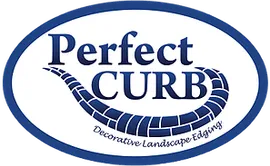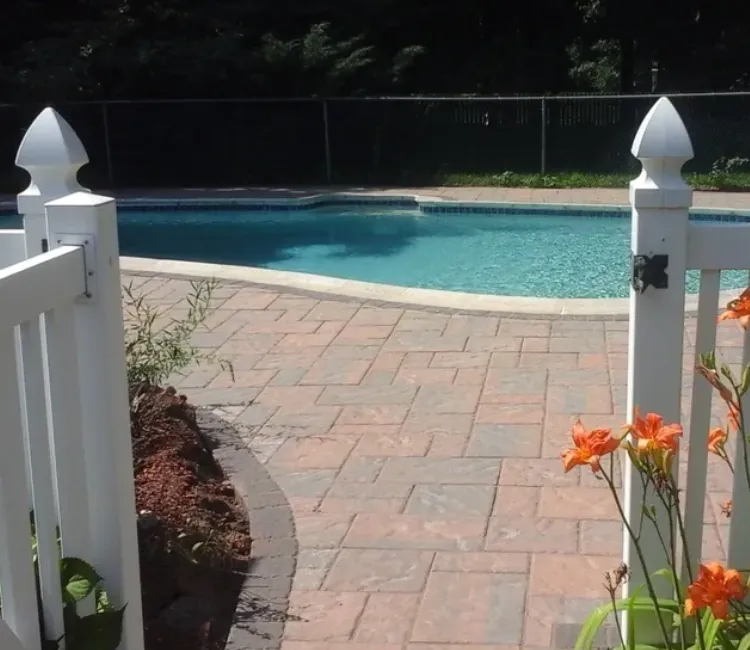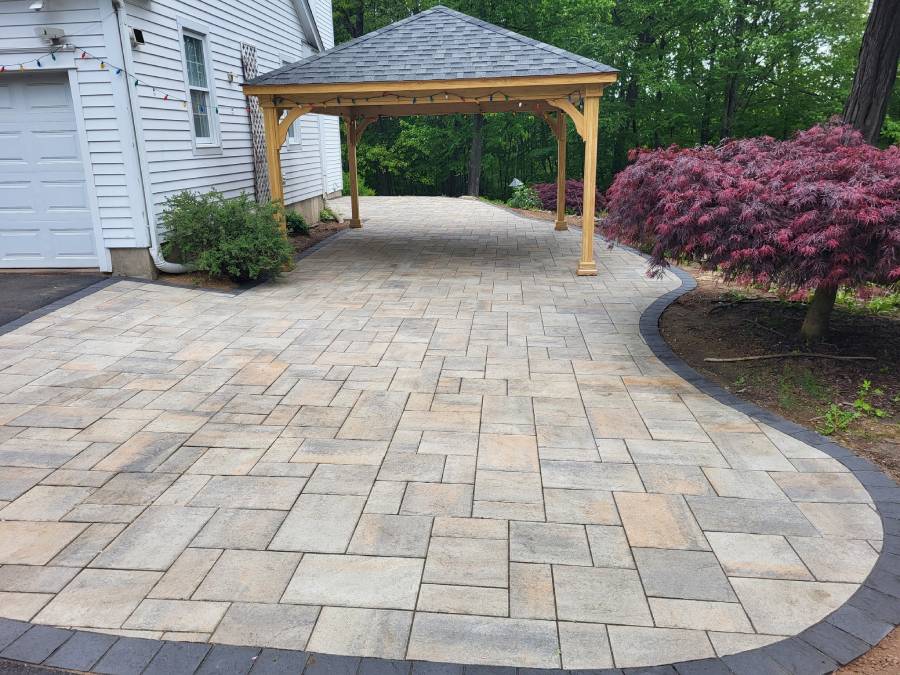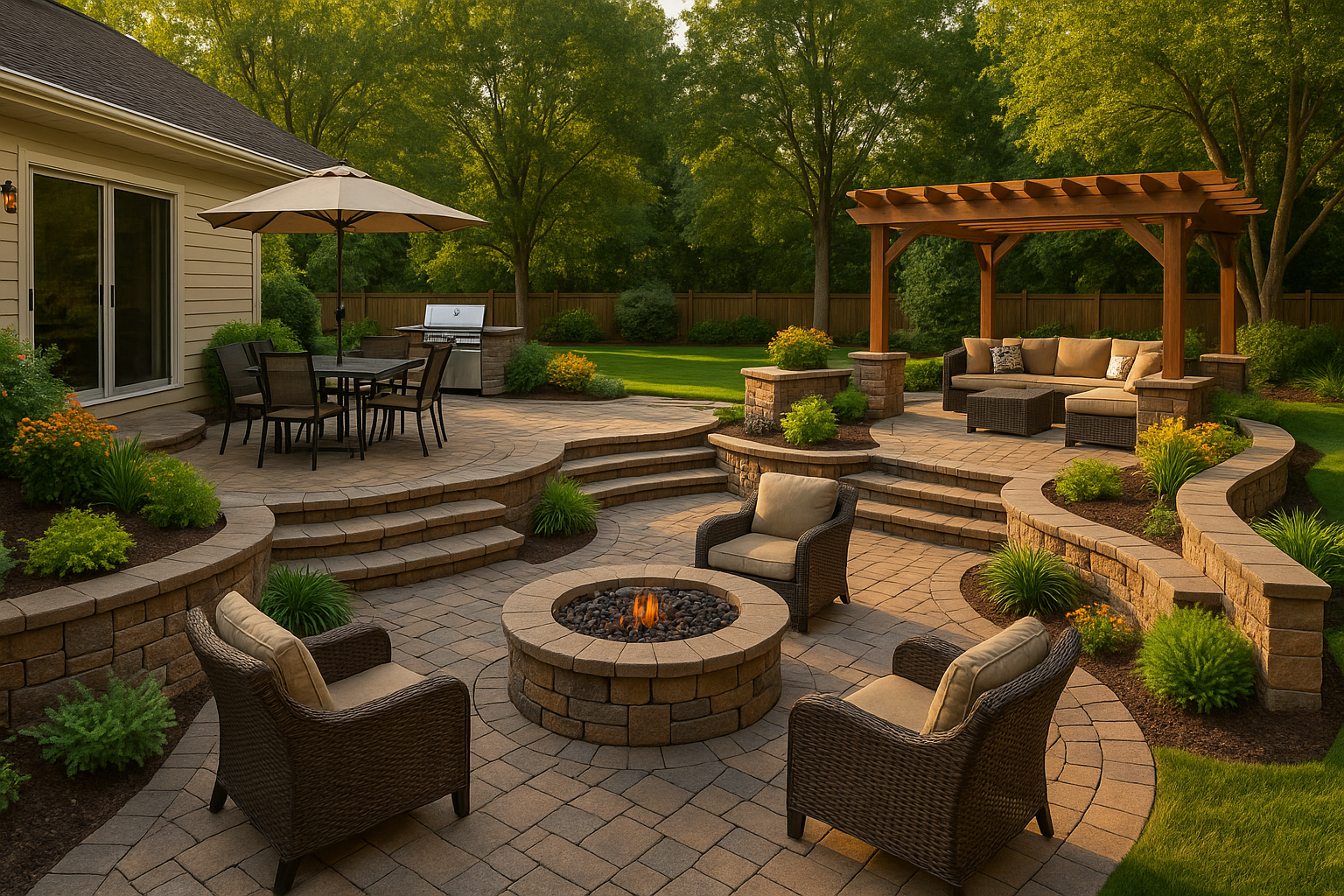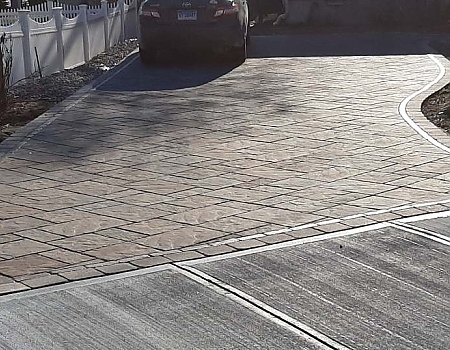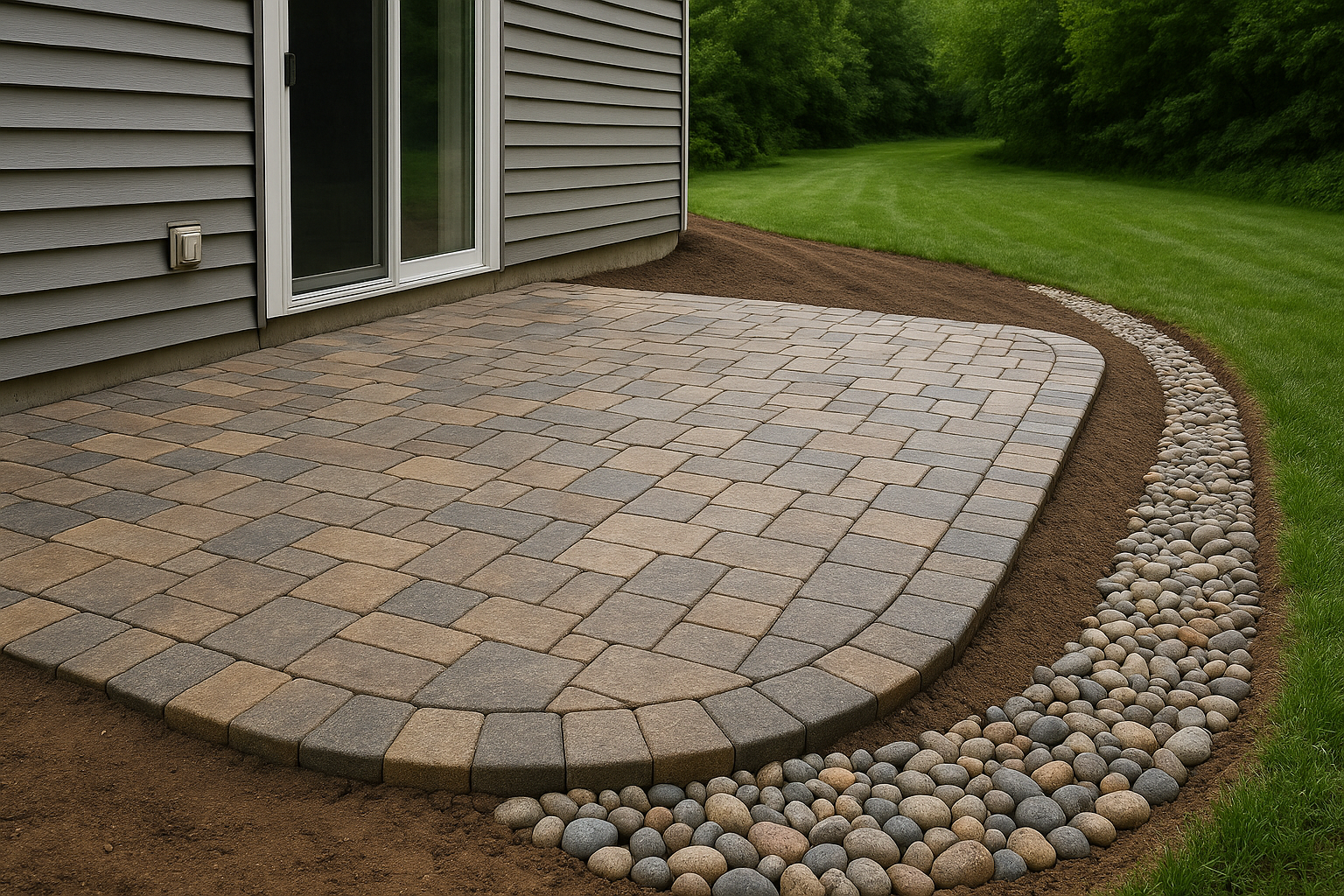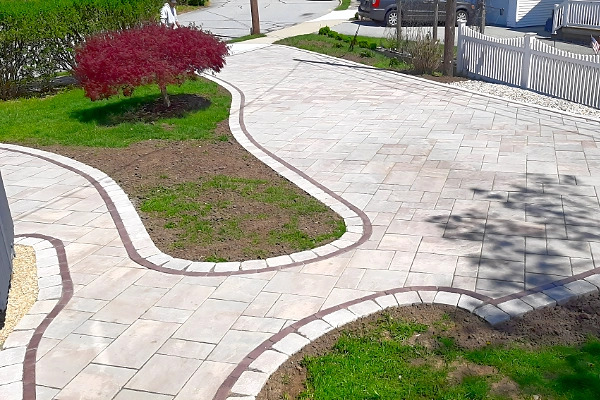When to Replace vs Repair Your Driveway in Colchester
Driveways in Colchester don’t hide their problems. Cracks, potholes, and crumbling edges show up fast. Wait too long, and those small issues turn into expensive repairs. Catching damage early keeps costs down and your driveway looking sharp.
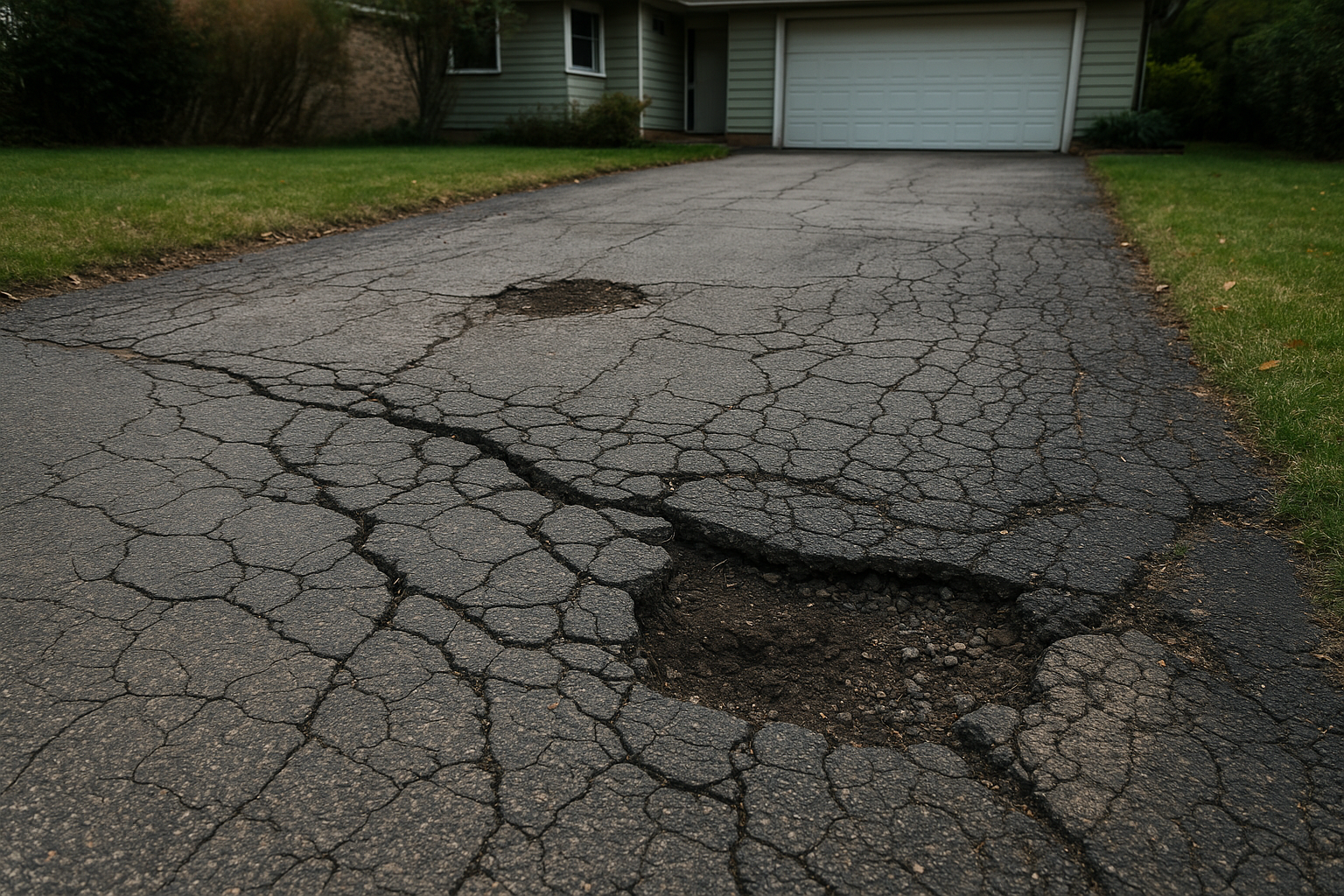
Spotting Real Trouble
Cracks that run deep and wide across your driveway aren’t just ugly. They signal that the base underneath is shifting or breaking down. In Colchester, winter frost pushes water into every gap. The freeze-thaw cycle splits concrete and asphalt apart, turning small cracks into wide gaps. When the surface starts to look like a spider web, the foundation is already in trouble.
- Cracks wider than a quarter inch collect water and debris. They grow with every freeze.
- Sunken spots create uneven surfaces. These trip hazards don’t just look bad; they signal the ground below is settling or washing away.
- Crumbling edges at the garage or street mean the driveway is losing support. The border breaks down first, then the damage spreads inward.
- Potholes that keep coming back after patching show the base is failing. Quick fixes don’t last when the foundation is weak.
- Loose stones or surface raveling mean the top layer is breaking apart. Water seeps in, making the problem worse every season.
These aren’t just surface problems. Water gets underneath, softening the base. Each winter, the damage accelerates. The driveway loses strength. Repairs become less effective. At this point, patching is just a temporary bandage.
When Repairs Make Sense
Not every crack spells disaster. Small, shallow cracks—less than a quarter inch wide—can be sealed by a professional. These repairs keep water out and slow down further damage. But when you see a mix of cracks, sunken spots, and drainage issues, it’s time to look at the bigger situation.
Standing water after rain? That’s a sign the driveway isn’t draining right. Water pools, seeps in, and weakens the base. Drainage solutions can redirect water away from trouble spots. Sometimes, adding retaining walls helps manage runoff and protects the driveway and your home’s foundation. These aren’t just upgrades; they’re long-term fixes that prevent repeat problems.
When repairs are possible, they work best when:
- Cracks are isolated and not spreading fast
- The base is still solid, with no soft spots or sinking
- Drainage is working, with no standing water
Anything more, and you’re throwing money at short-term solutions. The problems will return, often worse than before.
Choosing the Right Material
Material choice shapes how long your driveway lasts and how much work it needs. Each option brings its own strengths and trade-offs:
- Asphalt lasts 15 to 20 years with regular sealing. It’s affordable and quick to install, but it softens in summer heat and cracks in winter.
- Concrete holds up for 25 to 30 years in good conditions. It resists heat and heavy loads, but salt and freeze-thaw cycles can break it down over time.
- Pavers go 30 years or more. They handle shifting ground better, and individual stones can be reset if needed. Paver installations also boost curb appeal with more style options.
- Gravel is the budget choice, lasting 5 to 10 years before it needs major replenishment. It’s easy to repair but needs regular raking and topping up.
Pick the material that fits your property, your budget, and your willingness to maintain it. Asphalt and concrete need sealing and cleaning. Pavers need occasional resetting. Gravel needs the most frequent attention but is easy to refresh. If you’re unsure which material is best, our team at Perfect Curb can walk you through the options and help you make a choice that fits your needs.
Understanding the Investment
Driveway work isn’t cheap, but neither is ignoring the problem. A rough, broken driveway beats up your car’s suspension and tires. It drags down curb appeal and property value. Upgrading the driveway, especially with new entryways or borders, can lift the whole look of your home. The upfront cost pays off in fewer repairs, better function, and a stronger first impression for visitors or buyers.
Think about the long-term costs:
- Repeated patching adds up fast. Each fix lasts less time as the base weakens.
- Water damage spreads to walkways, garages, and even basements if left unchecked.
- Well-installed driveways last decades with basic care. Cheap fixes rarely last a season.
Investing in quality materials and professional installation saves money and hassle over the years. The right solution depends on the current state of your driveway, your goals, and your budget. If you want a driveway that stands the test of time, we recommend consulting with our experienced installation team to ensure every detail is handled right from the start.
Transform Your Driveway Today
Perfect Curb stands ready to evaluate your driveway's condition and provide honest recommendations. Call us at 860-574-0238 or get a free estimate to start your driveway transformation.
‹ Back
